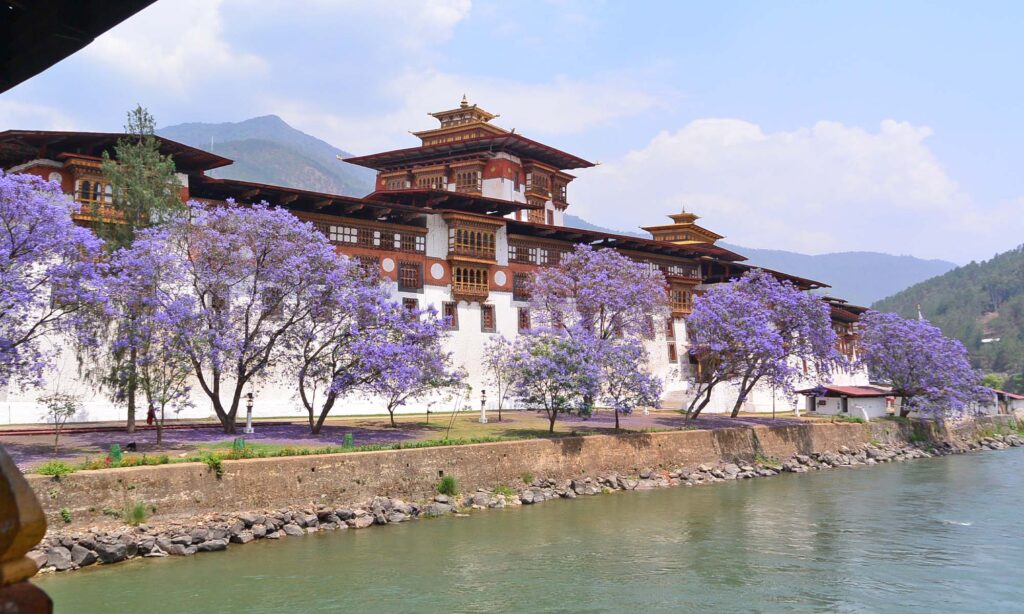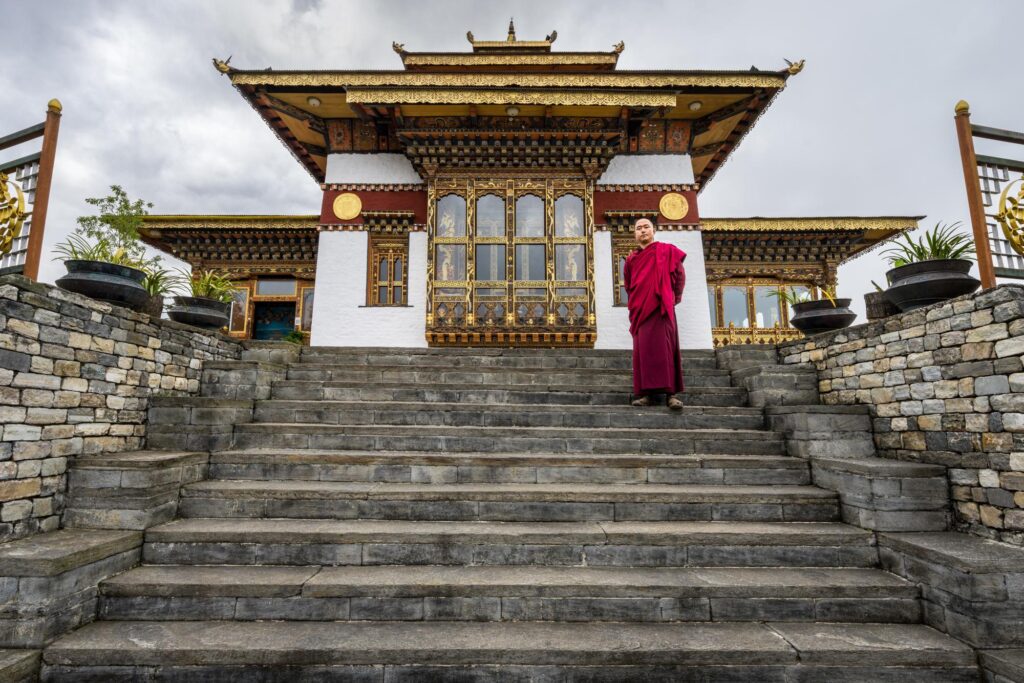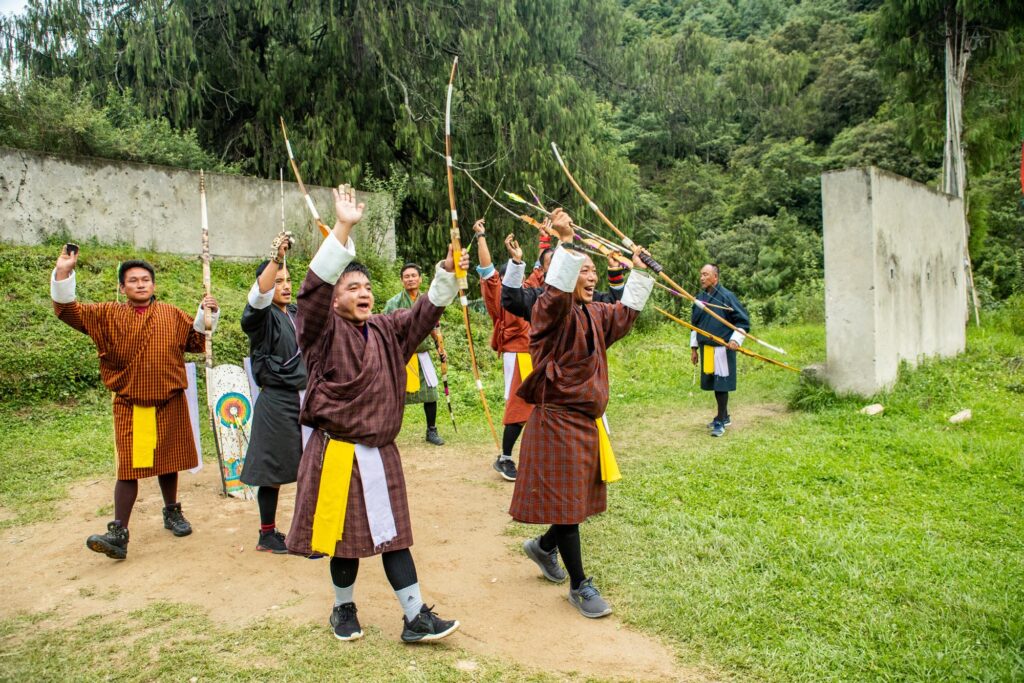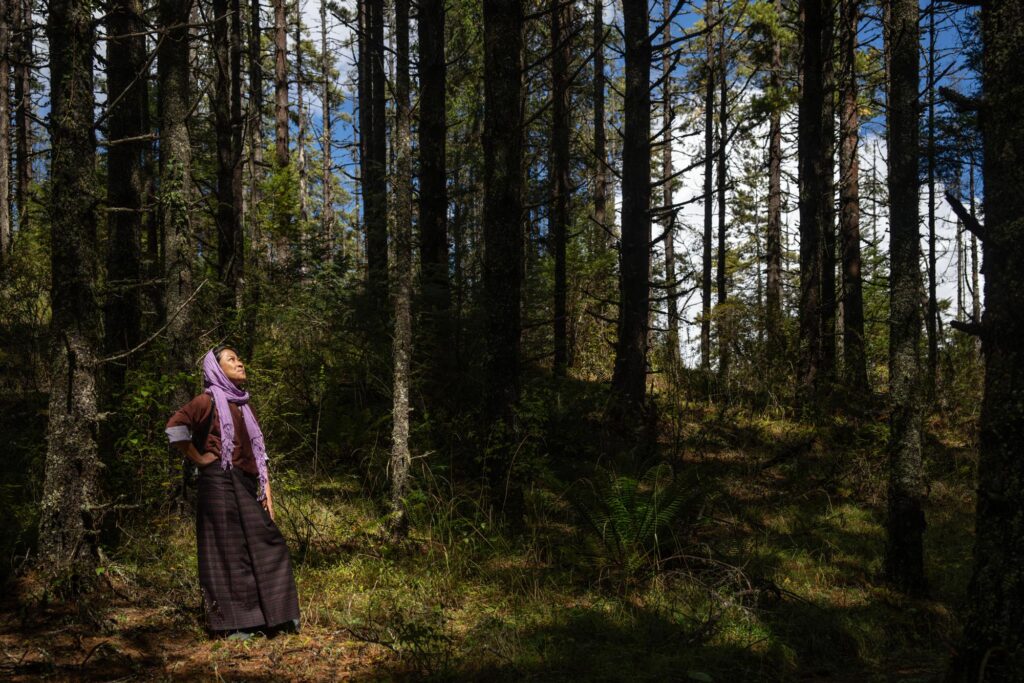BHUTAN
The Land of Gross National Happiness


Spiritual Heritage
As the last Vajrayana Buddhist kingdom in the world, Bhutan is a living testament to the profound spiritual traditions that have shaped its culture for centuries. The country’s sacred landscape is dotted with religious sites, monasteries, and temples, each imbued with deep spiritual significance.
Bhutan’s spiritual history traces back to the 8th century, with the blessings of Guru Padmasambhava (Guru Rinpoche), the great Tantric master who introduced Buddhism to the Himalayan region. His influence, along with that of other revered figures such as Zhabdrung Ngawang Namgyel, who unified Bhutan in the 17th century, has helped shape Bhutan’s unique identity as a beacon of Vajrayana Buddhism.
From the awe-inspiring Tiger’s Nest Monastery (Paro Taktsang) perched on the edge of a cliff to the serene temples and meditation caves scattered across the country, Bhutan offers travelers a rare opportunity to experience living Buddhism in its purest form. With each step through the country’s sacred sites, visitors are not only walking through history but are also invited to partake in a journey of spiritual awakening and inner peace.


Cultural Heritage
Bhutan, which opened its doors to modernization only in the 1960s, has remarkably preserved its ancient traditions and cultural identity. While many countries have undergone rapid transformation, Bhutan has managed to retain the essence of its heritage, from farming practices and architectural styles to strong community bonds and spiritual values.
The cultural landscape of Bhutan is defined by a harmonious blend of nature and tradition. Vast agricultural fields stretch across the valleys, tended by farmers using techniques passed down through generations, while traditional wooden houses with ornate design features stand proudly amidst lush greenery. These timeless homes, often built in the style of the dzong (fortress), blend seamlessly into the surrounding landscape, creating a picturesque view of rural Bhutanese life.
The traditional way of life in Bhutan, with its emphasis on community, sustainability, and spiritual harmony, stands as a testament to the country’s commitment to preserving its cultural roots. Whether it’s witnessing the rice terraces that line the mountainsides, exploring villages where time seems to slow down, or simply walking through ancient streets, Bhutan offers an unparalleled experience of a land where tradition thrives alongside the beauty of nature.


Natural Heritage
The Constitution of Bhutan mandates that 60% of the country’s total area be maintained under forest cover in perpetuity. Remarkably, over 70% of Bhutan is currently forested. Bhutan is also one of the few carbon-negative countries in the world, offsetting more carbon than it produces.
The country’s interconnected parks and biological corridors form a pristine ecosystem, home to a rich diversity of wildlife, ensuring the preservation of its natural heritage for generations to come. The government’s commitment to environmental sustainability is further reflected in its policies promoting organic farming, renewable energy, and conservation. This dedication to nature makes Bhutan a global leader in ecological preservation and a model for sustainable development.
